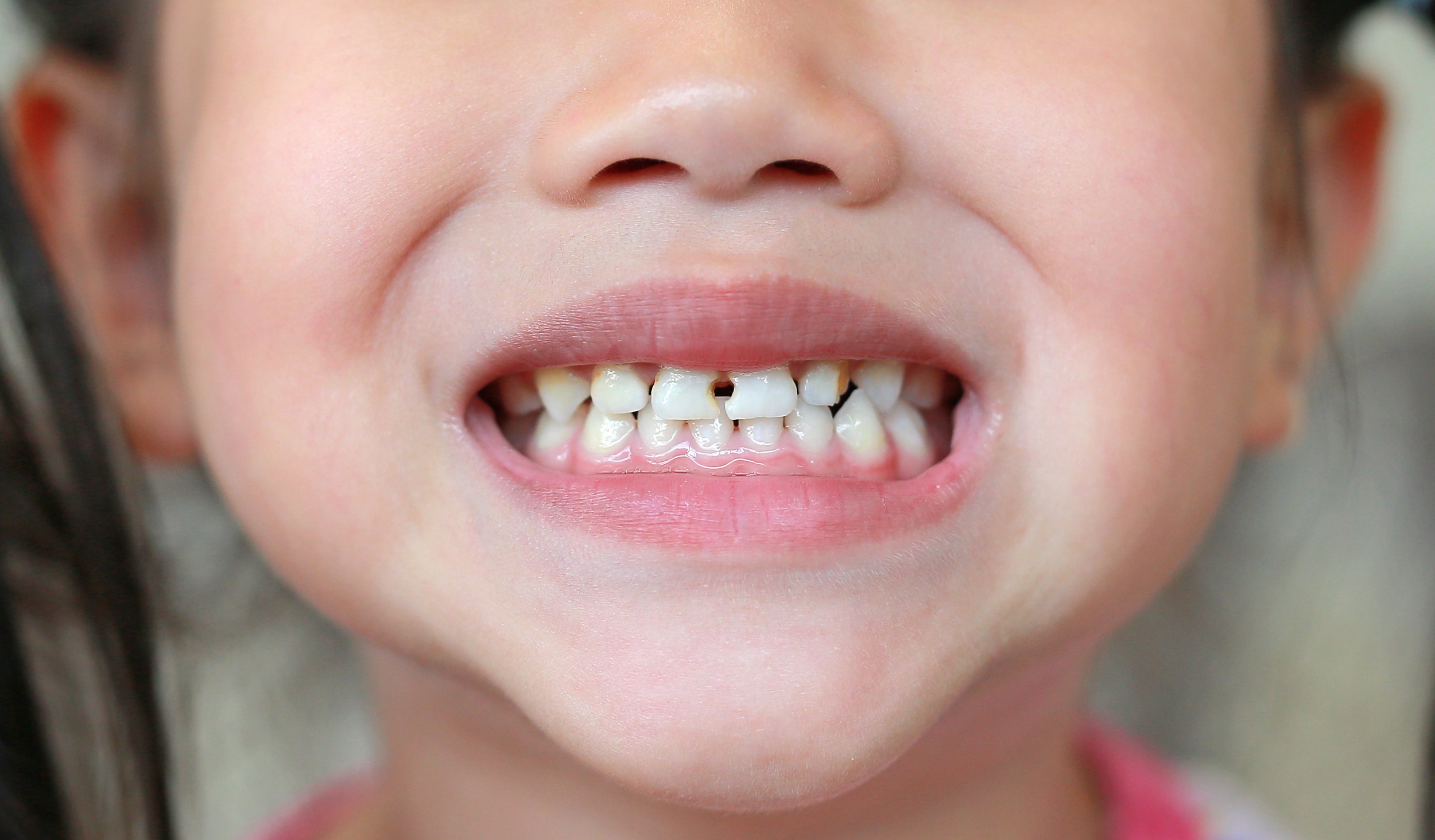How Decay in Baby Teeth Affects Adult Teeth: What You Can Do to Prevent It
At Kids Dental Spot, one of the most common questions I hear from parents is: "Do baby teeth really matter since they’re going to fall out anyway?" It’s an understandable thought, but baby teeth (also known as primary teeth) are more important than many realize. They set the foundation for your child’s future oral health, and neglecting them can cause long-term issues, even affecting adult teeth. Let’s dive into why keeping baby teeth healthy is crucial and what we can do to prevent decay.
Why Do Baby Teeth Matter?
Baby teeth aren’t just placeholders. They serve several key purposes:
Guiding adult teeth into place: Baby teeth save space for adult teeth. If a baby tooth is lost early due to decay, surrounding teeth can shift, making it harder for adult teeth to grow in straight. This can lead to crowding, misalignment, or the need for braces later on.
Preventing infection from spreading: Cavities in baby teeth can lead to infections. If left untreated, this decay can spread, affecting the adult teeth developing underneath the gums. This can make adult teeth more susceptible to cavities, even before they emerge.
Supporting healthy chewing and speech: Healthy baby teeth help kids chew properly and develop clear speech patterns. Losing these teeth too early can impact how they eat and speak.
How Can We Prevent Decay?
The good news is that cavities in baby teeth are preventable! Here are some simple but effective steps we recommend at Kids Dental Spot:
1. Brush and Floss Early
It’s never too early to start good oral hygiene habits. Begin cleaning your baby’s gums even before their first tooth appears by gently wiping them with a damp cloth. Once those little teeth start coming in, brush them twice a day using a small, soft toothbrush and a tiny smear of fluoride toothpaste. Around age 2, start flossing between any teeth that are touching.
2. Limit Sugary Foods and Drinks
Sugary snacks and drinks like juice or soda can lead to decay, even in baby teeth. Instead, offer your child water throughout the day and save sugary treats for special occasions. Healthy snacks like fruits, vegetables, and cheese are great options for their growing teeth.
3. Regular Dental Checkups
We recommend bringing your child in for their first dental checkup around their first birthday. Routine visits every six months help us catch any issues early and keep baby teeth healthy. During these visits, we can provide cleanings, apply fluoride treatments, and offer tips to protect those tiny teeth.
4. Fluoride for Stronger Teeth
Fluoride is a simple way to strengthen tooth enamel and make it more resistant to cavities. If your local water supply doesn’t contain fluoride, or if your child needs extra protection, we can apply fluoride varnish during their regular checkup. It’s a quick and painless treatment that offers long-lasting benefits.
5. Make Oral Care Fun
Encouraging good habits is easier when it’s fun. Let your child pick out a toothbrush in their favorite color or with a fun design. You can also turn brushing and flossing into a game—try singing a song, setting a timer, or creating a sticker chart to track their progress.
Final Thoughts
Healthy baby teeth lead to healthy adult teeth. By focusing on preventive care now, you can save your child from potential dental issues down the road. At Kids Dental Spot, we’re here to help every step of the way, from their first tooth to their adult smile. Keeping those baby teeth strong and decay-free today will pay off in a lifetime of healthy teeth.
If it’s been a while since your child’s last checkup, give us a call! We’d love to partner with you to protect your child’s smile for years to come.
Kids Dental Spot is a dental office focused providing services to pediatric patients in Anaheim, California serving kids, children, infants and adolescents in the heart of Orange County serving nearby neighborhoods, such as: Fullerton, Brea, Garden Grove, Santa Ana, Buena Park, Placentia, and Orange.
Written and Medically Reviewed by Dr. Atiya Bahmanyar, DDS (Board Certified - Doctorate of Dental Surgery)


